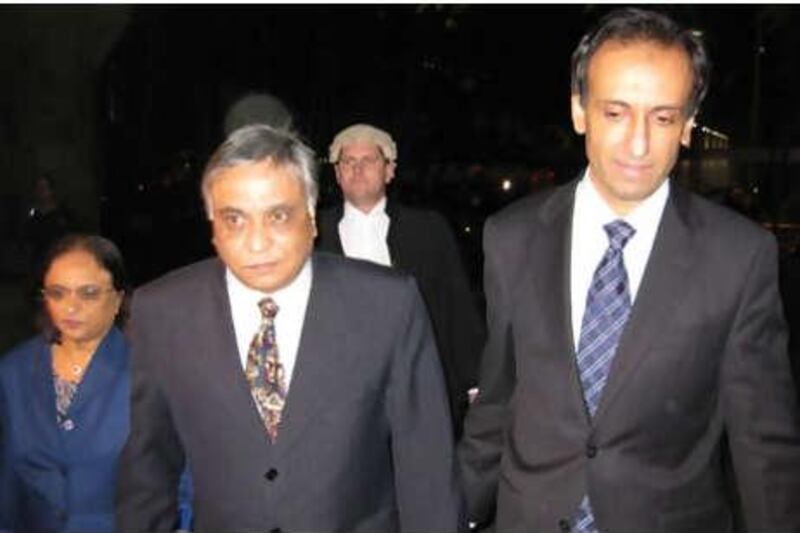BRISBANE, AUSTRALIA // A surgeon dubbed "Dr Death" in Australia for a string of botched operations was sentenced today to seven years in prison for killing three patients and permanently harming another. A jury had convicted Indian-born US citizen Jayant Patel, 60, two days earlier of three counts of manslaughter and one of causing grievous bodily harm while he was a surgeon at a hospital in Queensland state from 2003 and 2005.
The sentence comes more than 25 years after questions were first raised about Patel's competency and ends a five-year saga for patients and their families who accuse Patel of irreparably damaging their lives. At the trial, Patel was accused of being driven by a "toxic ego" to perform surgeries that US authorities had banned him from undertaking, of misdiagnosing patients and employing sloppy and antiquated techniques.
"The community denounces your repeated serious disregard for the welfare of the four patients," Justice John Byrne of the Queensland Supreme Court told Patel. Prosecutor, Ross Martin, told a sentencing hearing today that there was no record of a worse case of medical criminal negligence in Australia, and urged Mr Byrne to imprison Patel for at least 10 years. Arguing for a suspended sentence with no prison time, defence lawyer Michael Byrne said Patel was a hardworking and well-intentioned man who had been humiliated during the long-running trial.
Patel faced a potential maximum of life in prison for the manslaughter of Mervyn John Morris, James Edward Phillips and Gerry Kemps, and the grievous bodily harm of Ian Rodney Vowles. Patel was sentenced to seven years in prison for each count of manslaughter and three years for the grievous bodily harm charge, though Mr Byrne ruled that all would be served concurrently. Patel will be eligible for parole after three-and-a-half years.
Mr Vowles said the sentence was too short. "I would have liked to have seen him put away for life - the amount of pain he has caused to the people," he said. Others were satisfied. "I'm very happy with the outcome, you couldn't have wished for better," said widow Judy Kemps. "He's been found guilty and whatever they do after that it doesn't worry me. My only aim has always been to stop him from doing further damage."
Patel graduated from medical school in Jamnangar, India, in 1976 and went to New York state two years later. In 1984, New York health officials fined Patel and placed him on probation for failing to examine patients before surgery. He later worked at Kaiser Permanente Hospital in Portland, Oregon, which banned him from liver and pancreatic surgeries in 1998. The Oregon Board of Medical Examiners later cited him for negligence.
In 2003, he took up a posting at the Bundaberg Base Hospital - a mid-size facility in Bundaberg, a small city in Queensland on the fringe of the Great Barrier Reef. Patel left Australia in 2005, just as questions began to be raised about his record. He was arrested by the FBI in 2008 and extradited for trial. A government inquiry prompted by media reports that dubbed Patel "Dr Death" found that Patel may have contributed directly to 13 deaths at Bundaberg, though by the time of his trial this had been boiled down to three counts of manslaughter and one of grievous bodily harm.
* AP





